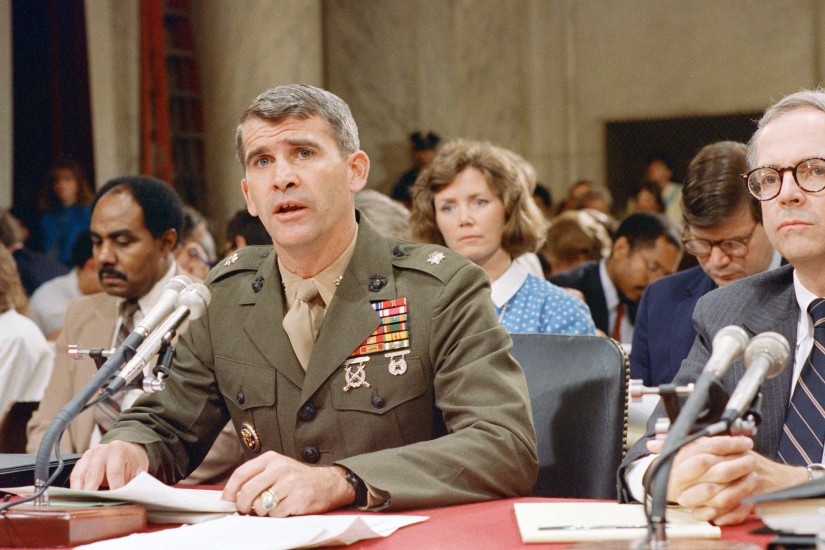Why didn’t this massive conspiracy of lawbreaking and executive overreach have any real consequences?
Reagan’s safeguard was plausible deniability. What the president knew and when he knew it was far from clear. Indeed, it remains far from clear, though the notes of Defense Secretary Caspar Weinberger show Reagan was better informed than he let on. (It’s worth noting that Reagan’s denials were plausible only in the legal sense — only 14 percent of Americans believed he was telling the truth when he said he hadn’t traded arms for hostages.)
But Reagan stuck to his denials. His testimony before Congress and as a defense witness in later trials was littered with the phrase “I don’t recall.” (In a 1990 deposition, Reagan said, “I can’t remember,” or, “I don’t recall,” 88 times.) And while it’s tempting to attribute this to the early stages of his Alzheimer’s disease, Reagan had notes that he could have used to fill in those blanks — notes whose release he strenuously blocked.
Other officials were saved by the lack of documents. All that shredding, itself a crime, meant that whatever evidence existed was turned into mulch well before hearings and trials were held. The administration also refused to declassify materials that would have strengthened prosecutors’ cases.
Oliver North was saved, at least for a while, by the power of the uniform. Testifying before Congress, North donned his full dress uniform, the starched olive-green jacket studded with ribbons and medals, and offered a just-following-orders defense. While he would eventually be convicted — it was overturned on appeal — he became a darling of right-wing media (which he remains).
For opponents of the Trump administration who pin their hopes on impeachment or resignation, Iran-Contra should be a sobering precedent. Stonewalling, destruction of evidence, conveniently muddied memories — all worked to shield the Reagan administration from the consequences of its bad acts.
